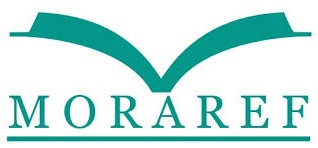Perilaku Konsumsi Hijau dalam Kegiatan Car Free Day: Studi Kasus Partisipatif di Ruang Publik
(1) * Seanita Febriana Angelica
 (Universitas Negeri Semarang)
(Universitas Negeri Semarang) Indonesia
(2) Kamal Ramadhani (Universitas Negeri Semarang)
Indonesia
(3) Mia Liliawati (Universitas Negeri Semarang)
Indonesia
(4) Amin Pujiati (Universitas Negeri Semarang)
Indonesia
(5) Inaya Sari Melati (Universitas Negeri Semarang)
Indonesia
(*) Corresponding Author
AbstractThis study examines green consumption behavior during Car Free Day (CFD) activities at Simpang Lima Semarang, a public space that serves as a meeting point for social, economic, and environmental interactions. This participatory case study aims to explore the forms of environmentally friendly consumption practices implemented by visitors and vendors in the open space. The method used is a participatory case study with participatory observation and in-depth interviews conducted over four weeks, involving 70 vendors and 143 visitors, with 24 informants willing to be interviewed in depth. Data were analyzed using a thematic approach to identify emerging patterns of behavior. The results show that various green consumption practices are implemented, such as the use of tumblers and cloth shopping bags by visitors, as well as the use of environmentally friendly packaging, the provision of local or organic products, and trash bins by vendors. Supporting factors include individual environmental awareness, social values, and the influence of family or community, while the main constraints are limited facilities and access to environmentally friendly options. These findings suggest that CFD Simpang Lima functions as an informal learning space for building ecological awareness through daily social interactions. This study recommends government support and community initiatives to enhance environmental literacy and the availability of green facilities in public spaces. These findings are currently limited to short-term observations, so further research is suggested to be conducted longitudinally or expanded to other cities to compare patterns of green consumption behavior in different urban contexts. |
Keywords
Full Text: PDF
Refbacks
- There are currently no refbacks.
Copyright (c) 2025 Seanita Febriana Angelica, Kamal Ramadhani, Mia Liliawati, Amin Pujiati, Inaya Sari Melati

This work is licensed under a Creative Commons Attribution-ShareAlike 4.0 International License.
This ejournal system and its contents are licensed under
a Creative Commons Attribution-ShareAlike 4.0 International License








.png)









